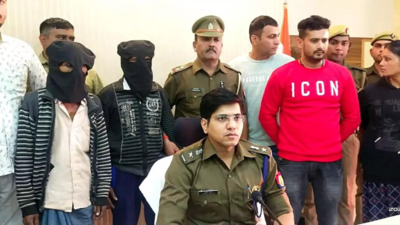Now Reading: Rahul Gandhi Slams Centre Over India-US Trade Talks, Questions PM Modi’s Stand Ahead of Trump Meeting
-
01
Rahul Gandhi Slams Centre Over India-US Trade Talks, Questions PM Modi’s Stand Ahead of Trump Meeting
Rahul Gandhi Slams Centre Over India-US Trade Talks, Questions PM Modi’s Stand Ahead of Trump Meeting

As India and the United States inch closer to finalising a trade agreement, political temperatures back home are rising. Congress leader Rahul Gandhi has criticised Union Minister Piyush Goyal’s recent comments on “national interest,” accusing the Modi government of preparing to surrender to American pressure. His remarks come just ahead of Prime Minister Narendra Modi’s expected meeting with former US President Donald Trump, sparking a fresh round of political sparring.
Trade Deal in the Spotlight
The India-US trade deal, long in the making, is reportedly in its final stages. It aims to resolve key tariff disputes, open up new markets, and boost bilateral commerce. While the Centre claims it is negotiating firmly to protect domestic interests, the Opposition argues that the agreement could favour American corporations at the cost of Indian industries.
Rahul Gandhi’s Criticism
Rahul Gandhi took to social media to challenge Minister Goyal’s assertion that “national interest” was being prioritised. He questioned whether the government was truly standing firm or merely posturing ahead of a high-profile interaction with Trump. Gandhi alleged that PM Modi would ultimately “meekly bow” before the former US president, reviving concerns about India’s negotiation stance on global platforms.
Tier 2 Cities and Local Impact
For small manufacturers and traders in Tier 2 cities like Ludhiana, Coimbatore, and Nagpur, the fine print of the trade deal matters. Many fear increased competition from imported goods, especially in textiles, electronics, and agriculture. On the flip side, others see potential benefits if Indian products gain easier access to American markets. The outcome could shape job growth, pricing, and export dynamics across smaller towns.
Government’s Response and Next Steps
Officials from the Commerce Ministry maintain that India will not compromise on core issues and that the trade deal will be “balanced and fair.” With rising scrutiny from political opponents and business leaders, the government is likely to tread cautiously as talks progress. PM Modi’s upcoming diplomatic engagement with Trump will be closely watched for any major announcements or policy shifts.
Conclusion
As global partnerships evolve, domestic politics continues to play a critical role in shaping international deals. Whether the India-US trade pact becomes a turning point or a point of contention will depend on both its terms and its execution. For millions of Indians—especially those in the business hubs of smaller cities—the real impact will be felt not in press briefings, but in everyday trade and livelihoods.

























